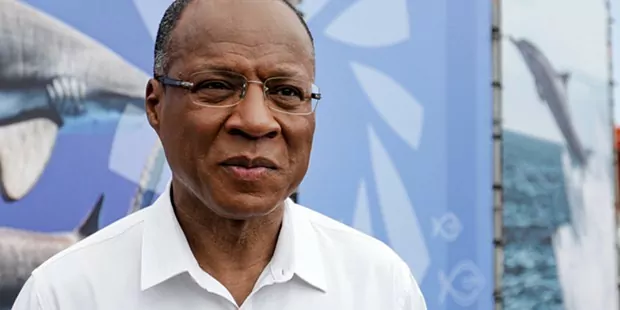Cape Verde’s Prime Minister, Ulisses Correia e Silva, said today he was satisfied with the assessment by the Fitch agency, which improved the country’s rating from stable to positive, considering that it is the result of the “good recovery” of the economy.
“We are pleased with the Fitch Rating agency’s assessment of our economy. It is a positive evaluation of what is happening in Cape Verde.”
“The economy has seen a good recovery,” wrote the head of government on his official page on the social network Facebook.

In its report published this week, the rating agency announced an improvement in its classification of the Cape Verdean economy.
It went from stable to positive, removing a risk step, with the long-term foreign currency rating at B-.
In the document, Fitch noted the country’s “strong economic recovery” and a “robust” growth outlook, which it expects to be 4.1% this year and 5.3 in 2024, still supported by the recovery in tourism.
“We had a 19.3% contraction in 2020 because of the impact of the pandemic.”
“We recovered 7% in 2021, 17.7% in 2022, the highest growth ever recorded in Cape Verde, with inflation still relatively high,” said the prime minister, saying that the prospects are for increased confidence in the Cape Verdean economy.
In its assessment, the rating agency said the country’s growth was driven by “robust” domestic demand” by tourism recovery and increased household consumption.
Tourism accounts for 25% of Cape Verde’s gross domestic product (GDP).
Growth, the same source continued, was also driven by the reduction in public debt, down to 120.9% in 2022 from a record 143.7% in 2021, with projections for it to fall to 111.9% in 2024.
“While our forecast indicates that Cape Verde’s debt/GDP will remain well above the ‘B’ median of 54.5% that we expect for 2024, this is mitigated by very favorable affordability metrics,” the agency warned, noting that the weighted average interest rate on the total debt stock is 1.9% and only 1.0% for external public debt.
In addition, it stressed that 88.1% of the debt ‘stock’ has a fixed interest rate (83.5% for external debt and 100% for domestic debt), which mitigates the risks of rising global interest rates.
“Meanwhile, the average maturity of the total debt is 16 years, rising to 21 years for the external debt.”
“We believe that the exchange rate risk, at 70 percent of total external debt, is mitigated by Cape Verde’s ‘peg’ to the euro,” the statement read.
“As for the issue of debt management, we are working to make it sustainable, despite the ‘stock’ being relatively high,” the prime minister acknowledged, showing optimism and saying that the government has a program to gradually reduce the weight of public debt in GDP.
Fitch forecasts a reduction in the current account deficit to 1.9% of GDP in 2024, after a reduction to 3.3% in 2022 and 11.9% in 2021.
With information from Lusa
News Cape Verde, English news Cape Verde, Cape Verdean economy

